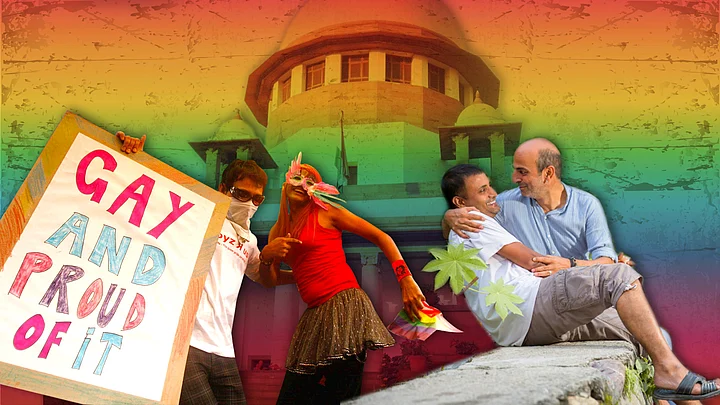- 2009: Delhi High Court declared Section 377 unconstitutional.
- 2013: Supreme Court overturned High Court’s decision saying it was up to the Parliament.
- 2014: Supreme Court dismissed a bunch of review petitions filed by gay rights activists.
- 2 February 2016: Supreme Court to hear curative petition filed by gay rights activists.
- Parliament says it cannot discuss the matter because it is sub-judice.
Today, 2 February, will be the last legal attempt to root out Section 377.
The Supreme Court will hear, in open court, a curative petition filed by gay rights activists and the Naz Foundation. The petition challenges the Supreme Court’s decision on 11 December, 2013, to uphold the validity of Section 377 of the Indian Penal Code, arguing that there was an error in judgement and that it was based on an old law.
A curative petition is the last judicial remedy available but, statistically speaking, it has a low rate of success.
Curative petitions are normally decided by judges inside the chambers, but in special or rare cases, there is an open hearing.
Fighting the Victorian Law
The US Supreme Court ruling on marriage equality witnessed enthusiastic support from all over the world. But In India, an archaic 1860 colonial-era law, Section 377, continues. While the fate of Section 377 hangs in the balance, there are 22 countries where same-sex marriage is now legal, but the fight for providing basic dignity and healthcare to members of the LGBTQ community is an ongoing battle in 79 countries across the world.
Regionally speaking, a majority of countries that criminalise homosexuality are found in Africa. The Middle East has the second highest number of countries with laws against homosexuality, followed closely by Asia. Homosexuality is legal in all European countries.
Politics Of 377
The BJP and Congress make the right noises but neither can seem to make up its mind on what to really do. While the top leadership has largely remained silent, the Union Finance Minister at the Times Litfest in November 2015 suggested that the Supreme Court must review its decision that re-criminalised homosexual acts under Section 377. However, the likes of Subramanian Swamy have said homosexuality is a genetic handicap.
When millions of people world over are having alternative sexual preferences, it is too late in the day to propound a view that they should be jailed. The Delhi High Court’s view appears more acceptable.Arun Jaitley, Union Finance Minister
Congress Vice President Rahul Gandhi has maintained that gay sex is a matter of personal freedom. Congress leader Shashi Tharoor had even brought in a private members bill to strike out Section 377 that was defeated in the Lok Sabha with 71 noes against 24 ayes.
A Look Back At Battling 377
In 2001, Naz Foundation Trust, an NGO, along with other gay rights activists filed a writ petition challenging the constitutionality of Section 377. Finally in 2009, the Delhi High Court declared Section 377 unconstitutional. The Delhi HC decision was challenged in the Supreme Court by Suresh Kumar Koushal, an astrologer.
The decision was overturned by the Supreme Court in 2013. The apex court, in its judgement, put the ball in the Parliament’s court, saying the Parliament can legislate on the matter.
The Parliament has stayed away saying the matter was still sub judice.
Written submissions of the Naz Foundation (India) Trust in the Supreme Court say:
Prior to the British rule in India, there was no law criminalizing sexual practices per se. Indian society has all along been more tolerant than others, including on the issue of sexuality. Criminalisation is in fact a western import. Ironically, although the English law was reformed in Britain by the Sexual Offences Act of 1967, Section 377 still remains on the statute books in India and is now seen by some as part of Indian values and mores.
‘Not a Disorder, Genetic or Otherwise’
The American Psychiatry Association (APA) and World Health Organisation (WHO), removed homosexuality from their list of disorders in 1973 and 1992, respectively.
In India, while “unnatural sex” is allowed for heterosexuals with the recent revision of rape rules, it continues to be taboo for the queer community. When Section 375 of the IPC was amended in 2013, it made penile non-vaginal sexual acts, between man and woman, without consent an offence. By necessary implication, such sexual acts which are consensual are no longer prohibited.
